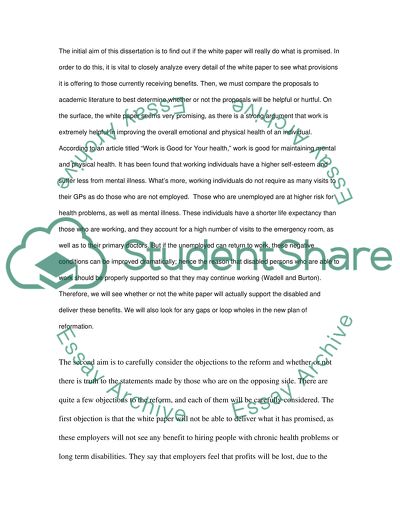Cite this document
(“'No one written off Evaluation of the government's promise; are Essay”, n.d.)
'No one written off Evaluation of the government's promise; are Essay. Retrieved from https://studentshare.org/miscellaneous/1553230-no-one-written-off-evaluation-of-the-governments-promise-are-disabled-people-going-to-be-winners-or-losers
'No one written off Evaluation of the government's promise; are Essay. Retrieved from https://studentshare.org/miscellaneous/1553230-no-one-written-off-evaluation-of-the-governments-promise-are-disabled-people-going-to-be-winners-or-losers
('No One Written off Evaluation of the government's Promise; Are Essay)
'No One Written off Evaluation of the government's Promise; Are Essay. https://studentshare.org/miscellaneous/1553230-no-one-written-off-evaluation-of-the-governments-promise-are-disabled-people-going-to-be-winners-or-losers.
'No One Written off Evaluation of the government's Promise; Are Essay. https://studentshare.org/miscellaneous/1553230-no-one-written-off-evaluation-of-the-governments-promise-are-disabled-people-going-to-be-winners-or-losers.
“'No One Written off Evaluation of the government's Promise; Are Essay”, n.d. https://studentshare.org/miscellaneous/1553230-no-one-written-off-evaluation-of-the-governments-promise-are-disabled-people-going-to-be-winners-or-losers.


